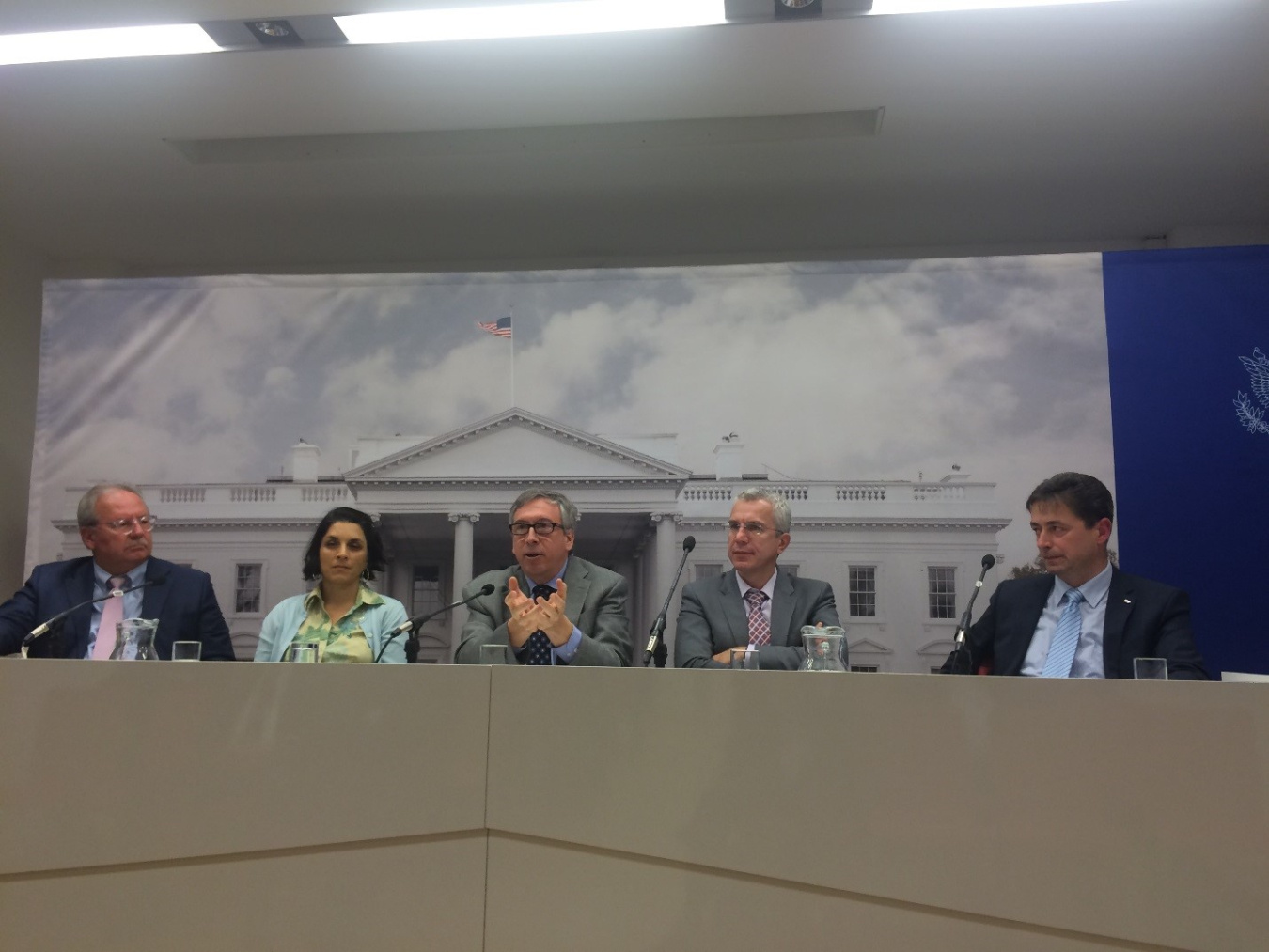
David Forrest (center) joins a panel to discuss “The Role of Advanced Materials in the Industry” at Amerikahaus in Austria. Dr. Forrest focused on atomically precise manufacturing and covetic nanomaterials. (Left to right: John Vickers, Associate Director of the Materials and Processes Laboratory at NASA Marshall; Diedre Olynick, Staff Scientist at Lawrence Berkeley National Laboratory’s Nanofabrication Molecular Foundry; David Forrest, Technology Manager in the Department of Energy’s Advanced Manufacturing Office; Paul Mayerhofer, Dean of Studies at Vienna Technical University; Christian Chimani, Head of Mobility Department at the Austrian Institute of Technology)
Each year since 2007, the Austrian government has brought industry and technology experts from the United States together through the George C. Marshall Visit to Austria Program. The program is designed to connect U.S. change makers together and to highlight Austrian innovations and build a collaborative relationship between the two countries.
This year, Dr. David Forrest, Technology Manager in the Advanced Manufacturing Office (AMO), received an invitation to join this prestigious delegation focused on advanced materials. Dr. Forrest has more than 30 years of award-winning work across industry, academia, and government. At AMO, his work centers around atomically precise manufacturing, high performance materials, and advanced material processes. Other delegates came from American universities and AMO partners such as Lawrence Berkeley National Laboratory and the National Science Foundation’s Advanced Manufacturing Program.
This November, Dr. Forrest joined eight advanced materials experts from the U.S. in Austria for dialogue with top Austrian universities and companies doing work in advanced materials and processes. The first day of the event, Dr. Forrest joined a panel discussion on “The Role of Advanced Materials in the Industry” which brought together other Marshall delegates along with experts from Austrian universities.
There were also a number of exciting visits showcasing demonstrations of the innovative work being done by private companies and through public-private partnerships similar to those supported by AMO. The delegates visited the Polymer Competence Center, which is a publicly funded, collaborative research center focused on polymer applications including automotive, aerospace, packaging, and solar energy. They also visited the K1-MET Metallurgical Competence Center which is focused on optimized usage of energy and resources in metal production. These competence centers follow a similar model to the Manufacturing USA institutes supported by AMO, with shared investments by industry and government. The delegates also toured the Institute of Science and Technology Austria (IST), an innovative new research center focused around recruiting Ph.D. candidates who are the best in their field and pairing them with state of the art laboratory equipment to do their research.
Dr. Forrest looks forward to sharing what he learned with the rest of AMO and working to connect AMO project performers with potential partners or customers abroad. The Marshall delegates returned to the U.S. prepared to strengthen the connections they made, share best practices in public-private partnerships, and pursue identified opportunities for collaboration to solve advanced materials challenges in the U.S. and worldwide.
